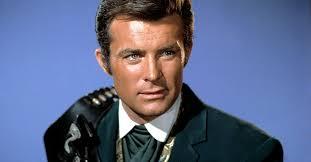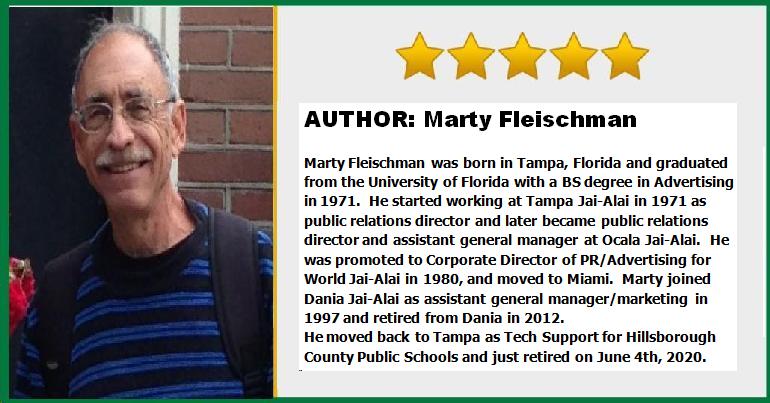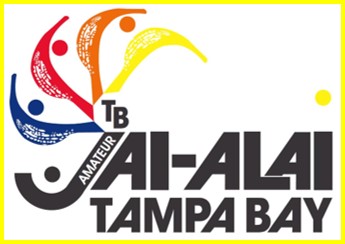Big Changes Coming

Robert Conrad, star of CBS series “The Wild, Wild West” (late 60’s) came to Tampa Jai-Alai to promote his new upcoming show, “Baa Baa Black Sheep” (later known as “Black Sheep Squadron.”)
I was upset, yet relieved. I did not get the corporate PR position. I was passed over for a guy who not only had never seen a game of Jai-Alai, but couldn’t even spell it. But I didn’t have to move to Miami. I didn’t have to live out of a suitcase. I could continue pursuing the path to management of my hometown fronton, Tampa Jai-Alai.
The Tampa fronton was still growing, setting attendance and betting records each season. Our record pari-mutuel handle was still occurring every year on Good Friday, the only night of the year Derby Lane Greyhound would close.
We were the only game in town and the dog bettors would have no choice but to come to us that night. First, we hit the $150,000 mark. Then, the next year we surpassed the previous record with a handle just over $200,000. We were cramming over 6,000 fans into a 3,700-seat facility.
One Saturday night, our official turnstile attendance was over 7,000. People were standing everywhere. General admission was just $1.00, and we had Standee Areas on each side of the fronton. Another thousand were in the main lobby watching the action on our closed-circuit televisions. It was an exciting time.
One afternoon, I received a call from an NBC executive in New York, telling me that a new series was to debut on the network starring Robert Conrad. Conrad was the television heartthrob after starring in a popular CBS series called, “The Wild, Wild West.” I was very familiar with the show, having watched it in high school and college. The exec asked if Conrad and some of the cast could make an appearance at Tampa Jai-Alai. Realizing the PR potential having a big star at the fronton, I responded with a resounding, “YES.”
In the 1970s, we had certain limits to the time we had to finish our performances. Betting windows had to shut down by 12:30 a.m. Monday through Friday nights. That never was much of a problem. But no gambling was allowed Sundays. Therefore, we had to start the last game by midnight on Saturdays. That was a problem. The state would levy a hefty fine if the betting machines weren’t locked at exactly 12:00 a.m. I heard many stories of how some of our people (including Buddy Berenson) had ways to hold our scoreboard clock from advancing past midnight. Sometimes those final minutes lasted double or triple in real time.
Robert Conrad and his co-stars were coming on a Saturday night. My plan was to introduce them on the court, take a photo, and let Conrad try his hand at Jai-Alai. Could the star hit the front wall in three tries? This would generate publicity for both his tour and the fronton. But it would eat up valuable time, especially if the regular games ran long.
Of course, I was excited to meet this big star… and coordinate the entire event. The night arrived, and I met them all at the front entrance. My first impression of Robert Conrad, though strikingly handsome, was how SHORT he was. He certainly didn’t look that short in his cowboy hat and fancy western suit on the show. But he was very friendly, and agreed to try the game.
I introduced Conrad and the cast to Dick Gerrity and assistant GM Giles Ellis. We stopped the court action after the 6th game singles and introduced them to the packed house. The crowd gave them a big ovation. They laughed and cheered as he threw the pelota straight down and backwards. By the third try, he at least threw it in the general direction but nowhere near the gigantic front wall. I quickly removed the cesta and with a final wave, they quickly left the court. Conrad was gracious enough to sign autographs for the players before he departed the players’ quarters. Fortunately, a few of the later games were short and we finished at 11:59 p.m.
That was my first interaction at Jai-Alai with a celebrity. But there were many, many more to come. For instance, later that season, I was sitting in my tiny office in the corner of the main lobby, carved out under the auditorium inclined seating. This meant that I had to squat down as I approached my desk to avoid hitting my head. A short, very loud- mouthed (and I mean that in a complimentary way) gentleman from Ybor City named Mario Nunez (not to be confused with my current friend of “The Tampa Natives Show”) yelled across the main lobby to me. Mario knew everyone in Tampa and worked closely with La Gaceta, the Spanish newspaper. He told me to wait in my office, that he was bringing someone to see me.
We were just starting the 3rd game of the matinee performance. Mario enters my office with a gentleman trailing behind him. “Marty, say hello to Pete Rose.” I almost fell out of my chair.
Pete shook my hand and sat down directly in front of me. Rose was still the superstar for the Cincinnati Reds that trained in Tampa. I found out that he loved horse racing and used to hang out at Tampa Bay Downs (Florida Downs in those days). The track was closed that day and Mario brought him to Jai-Alai. We talked baseball and I gave him some tips on betting Jai-Alai. I guess I should have told him to stick only to horses and our sport. Betting on baseball was NOT a good idea. He found that out later, being banned from the Baseball Hall of Fame.
Meanwhile, World Jai-Alai was now focusing on establishing its brand and preparing for the opening of our new fronton in Hartford, Connecticut. Little did I know, the State of Connecticut’s licensing division was threatening to withhold issuance of our operating license. Millions of dollars were at stake. Corporate trouble was brewing and a major shakeup in our company was about to happen.










